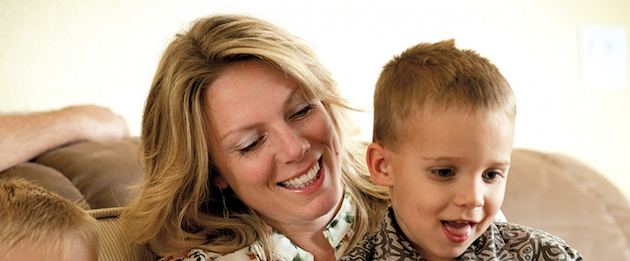By Marni Prince
Cinderella, Snow White, and Hansel & Gretel — what do they all have in common? The omnipresent myth of the “Evil Stepmother.” It’s easy to imagine how this constant negative representation of stepparents in books, television and movies is very unhealthy for children of blended families. How can they feel good about accepting stepparents into their lives when everything they are hearing is the contrary?
In fact, this myth may be affecting both children and adults more than they realize, due to the effects of what social researchers refer to as “stereotype threat.” In a nutshell, stereotype threat means the more someone is aware of a stereotype, the more they are apt to act in accordance with it. The social psychologists Claude Steele and Joshua Aronson conducted tests, which confirmed that stereotype threat could affect academic performance. They found that African-American college students performed more poorly than white college students on tests where race was emphasized. However, on tests where race was not emphasized, African-American students performed equally with white students.
The “threat” portion of stereotype threat refers to the member of the stereotyped group – stepmothers in this case. In her book The Happy Stepmother, Rachel Katz explains: “If you try to avoid conforming to such [negative] labels, you will react differently than if you did not feel threatened. You will work harder to overcome the stereotype, and, more likely than not, you will experience more anxiety.” But the negative stereotypes around stepmothers don’t just affect the stepmothers themselves. I would argue that the more children are aware of these stereotypes, even if they know they’re fairy tales, the more likely they are to believe in them, even if that belief is subconscious.
In real life, there are of course good stepmothers and bad stepmothers, good mothers and bad mothers. And to even categorize someone as all good or all bad is unrealistic, but the media likes to create one-dimensional characters. If characters in movies and television aren’t one hundred percent good or bad, then we actually have to use our brains to think about what motivates them. Unfortunately, sometimes the stories that sell are the ones that don’t ask the audience to think.
In the movie “Nanny McPhee,” the children end up with a kind stepmother, but not before a stereotypically wicked potential stepmother comes dangerously close to marrying their father. And in “Enchanted,” the character Giselle remarks, “I’ve met many stepmothers, and most of them are very nice,” which is a pleasant sentiment, but I’m not sure it cancels out that stepmother Queen Narissa just turned into a destructive, fire-breathing dragon!
The question is, how necessary to the story are these negative depictions of stepmothers – and do the depictions have the unfortunate effect of reinforcing the stereotypes? Couldn’t a stepmother be part of a story where there’s no concern of her being evil? There have been plenty of books written that attempt to “normalize” stepparents, but too often they come across as didactic or preachy. Many books implicitly draw a line between “normal” families and stepfamilies, and unfortunately, that’s something which young readers pick up on.
When writing the book “My Fairy Stepmother,” our aim was to take the most popular myth, Cinderella, and turn it on its head. The evil stepmother has been replaced with a caring one who uses her magic to help her stepdaughter overcome her fear of sleeping. Hopefully this book will provide a nice platform for stepparents and stepchildren to connect and feel good about their blended family. If the media keeps telling children stepmoms are evil, they will always have this preconceived notion in the back of their minds, which will make acceptance all the more difficult.
Being a stepmother is no easy task, and those who take on this role should be praised, instead of vilified. It’s time the paradigms shift so that stepmothers and blended families in books, movies and television are shown in a positive light that is more reflective of today’s family dynamic. In fact, having multiple role models with different perspectives can help broaden and enrich a child’s life. We hope more books like My Fairy Stepmother are forthcoming and maybe someday, when a child says “I’m going to have a stepmom,” the general response will be, “That’s great – you’re so lucky!”
About the Author
Marni Prince is the author of My Fairy Stepmother, available on Amazon.com. For more information about the book, please visit http://www.myfairystepmother.com/.

